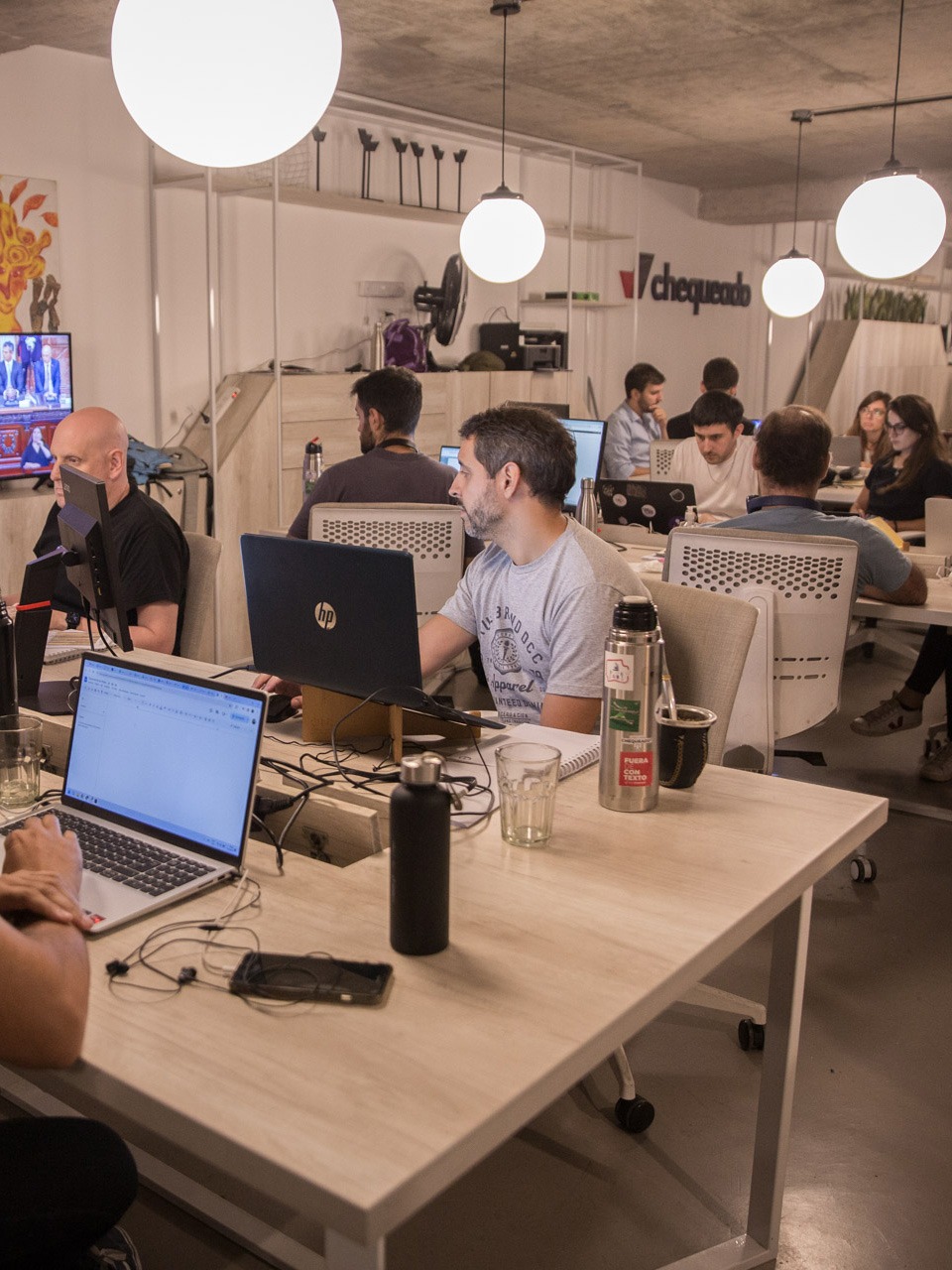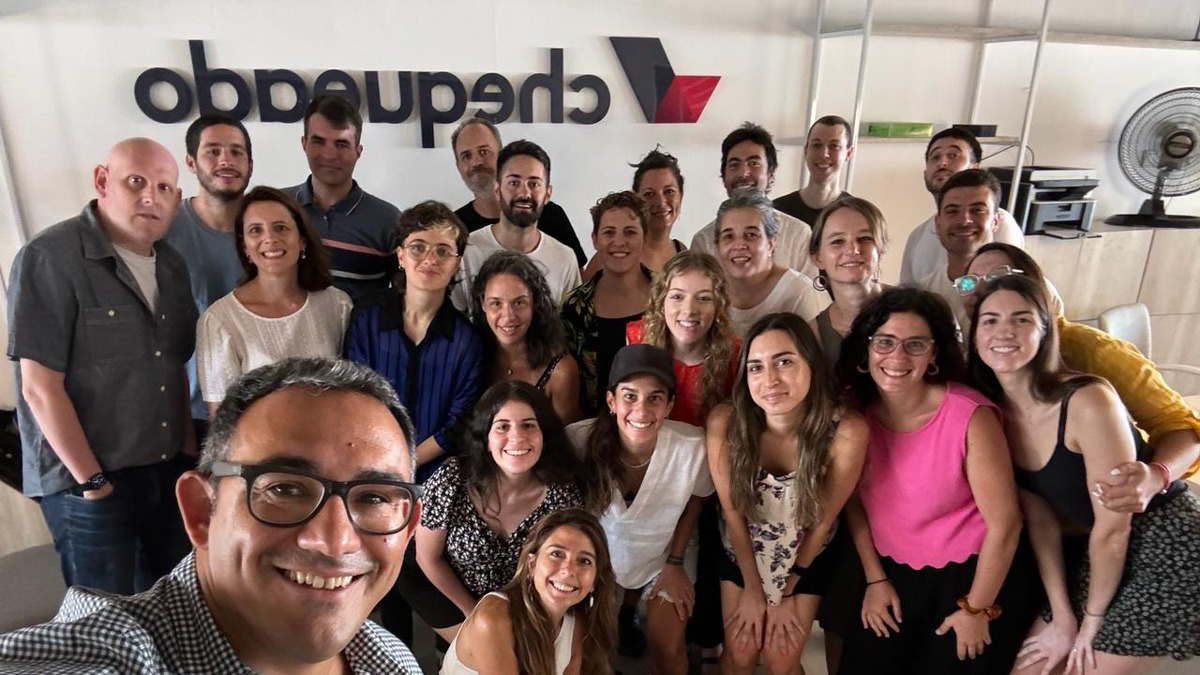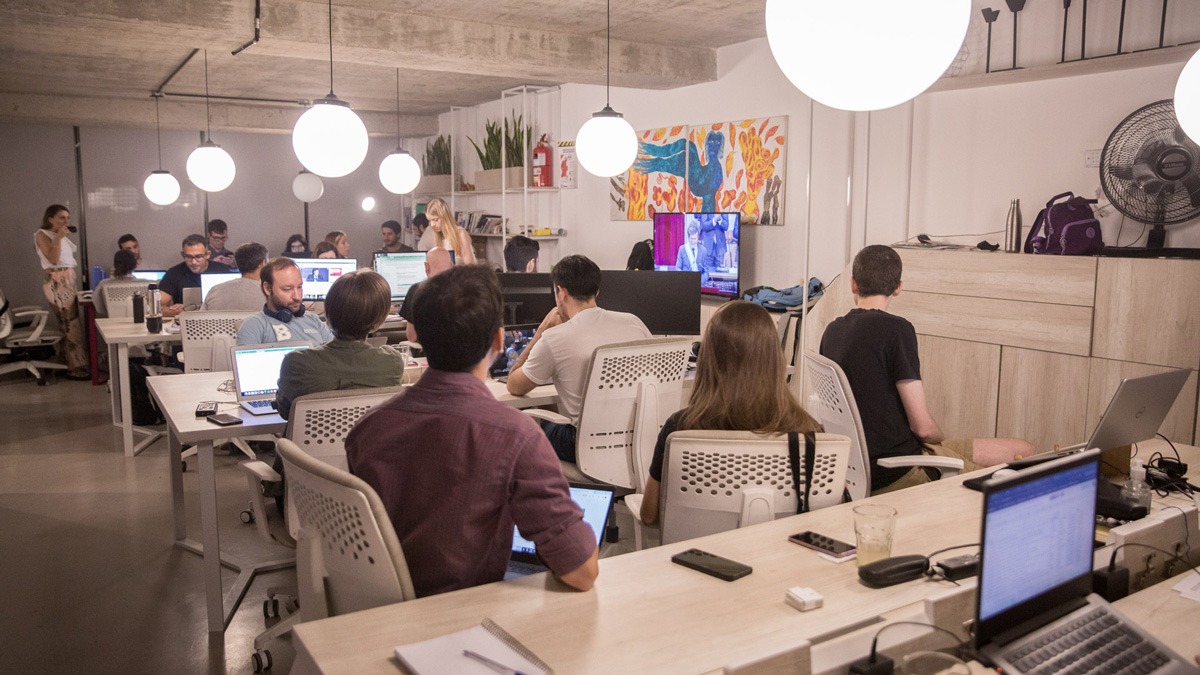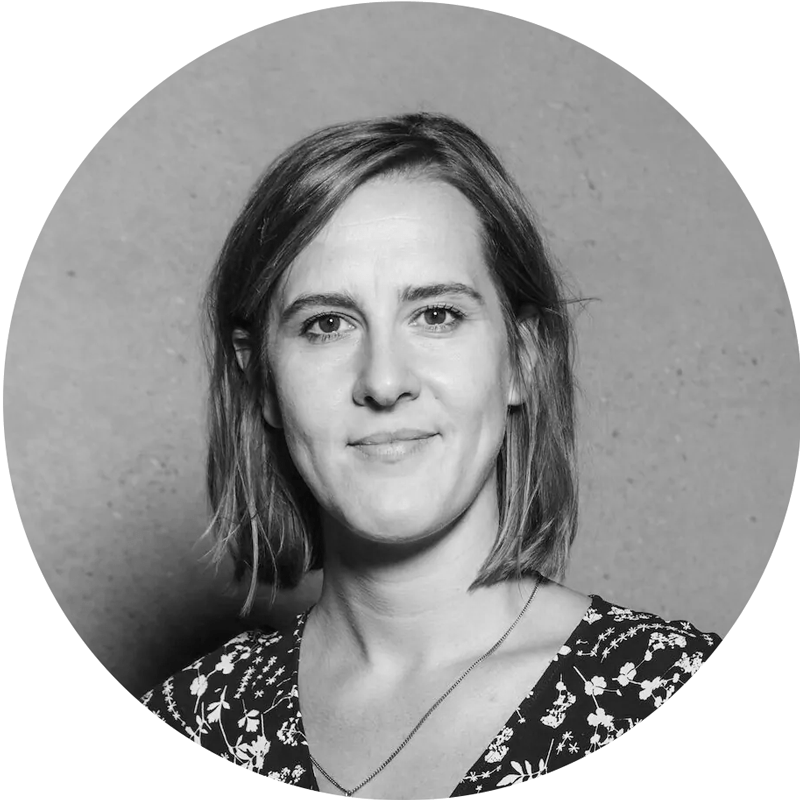

Chequeado: The oldest fact-checking organisation in the southern hemisphere
Virginia Kirst

Chequeado pursues a comprehensive approach: With the aim of improving the quality of public discourse, it publishes fact-checks, initiates educational programmes, and conducts extensive research and evaluation into how effective its own methods are.
Chequeado, which translates to “verified”, is the oldest fact-checking organisation in the southern hemisphere. The non-profit, non-governmental organisation has been verifying public discourse in Argentina and making reliable information and data available to the general public since 2010. By doing so, Chequeado aims to improve the quality of public discourse and promote critical thinking in an overall effort to strengthen democracy. Today, it is one of the top ten fact-checking organisations in the world.
The founding story is atypical for the industry because it started with a physicist, an economist, and a chemist: Julio Aranovich, José Alberto Bekinschtein, and Roberto Lugo were already over 60 years old when they started Chequeado. With no previous experience in journalism, politics or the non-profit sector. All three, however, were troubled by how polarised the political discourse was in Argentina at the time, as Olivia Sohr, head of the innovation department at Chequeado and the first employee, reports: “The population was divided. People either believed the government or the largest private media organisation.” Also, many public statistics were manipulated, such as those on inflation and poverty. “That’s why there were many opinions, but almost no facts,” says Sohr.
The men wanted to challenge this by setting up an organisation based on the model of factcheck.org, which Aranovich knew from the USA. Chequeado resultingly became a fact-checking pioneer in Latin America and, by setting up the LatamChequea network, ensured that the approach spread to other countries on the continent.
Today, the association consists of 40 organisations from 19 countries that share best practices and lessons learned as well as work on joint projects.
The correct knowledge thanks to international exchange
This approach paid off for Chequeado in Argentina’s 2023 presidential election. The organisation received worldwide attention because of the eccentric candidate Javier Milei, who described himself as an anarcho-capitalist and ultimately won the election. The worry was that the process of the elections was under threat: The playbook was known well following the US and Brazilian elections and consisted of questioning the legitimacy of the election in order to make the result contestable afterwards.
Previously, the fact-checkers had only been used to disinformation about candidates or their proposals. “Questioning the process itself was a new, bigger threat to democracy,” says Sohr. But Chequeado was prepared for this thanks to the experience of their partner fact-checkers and was able to successfully debunk the accusations of fraud with prebunking, i.e. the correcting of disinformation at an early stage before it became widespread.
Automated monitoring and chatbot as a tipline
This approach is typical for the organisation: The journalists monitor the social media platforms Meta, X, Telegram, YouTube, and TikTok as well as traditional media for disinformation. If they come across any, they publish a fact-check that corrects errors – or confirms that the information circulating is correct. This content is then distributed via Chequeado’s website and social media channels and published in traditional media via various partnerships.
Further central to the work is the monitoring software that the organisation has been training with machine learning since 2016. It scans digital news content and parliamentary protocols for disinformation. Another channel is the self-programmed chatbot, which users can use to send potential disinformation to Chequeado via WhatsApp. If there is existing fact-checking on the submitted information, the bot responds. Otherwise, the journalists use the hundreds of incoming messages every day to identify new narratives. The advantage is that they can also see which messages are spreading in closed WhatsApp chats.
Passing on knowledge and scientific processing
A central concern of Chequeado is the dissemination of its own knowledge. The organisation therefore holds workshops for journalists, with a special focus on local journalists often lacking knowledge of or access to fact-checking tools. In addition, Chequeado strives to improve media literacy and critical thinking among young people through its educational programme. To this end, Chequeado works with teachers and provides them with teaching materials.
The organisation also produces analyses and conducts investigative research on topics related to disinformation, the actors behind it, and platform policies. “We see that the same types of disinformation are repeated in different countries and believe that there is a lot of potential in cooperating with other organisations on a regional or even global level,” says Sohr.
Their analyses also assess the efficiency of their own work. Chequeado further makes its data available to scientists who can examine the impact. Some of the results are surprising: for example, an article recently appeared in Nature magazine, which – also based on Chequeado’s data – found that users prefer to share positive fact checks rather than negative ones because people prefer to spread information that is true. Previously, Chequeado considered positive fact checks to be less interesting from a journalistic point of view because they do not expose lies or abuses.
How Chequeado can serve as a role model
Chequeado has established itself as a pioneer in the fact-checking industry and has used this position to build a network spanning 19 countries. By collaborating with others, the organisation demonstrates the importance of sharing knowledge and resources to effectively counter disinformation. In addition, Chequeado emphasises the importance of reviewing its own work. This transparent and evidence-based approach provides additional credibility. Ultimately, through its active communication and educational work, the organisation ensures that its findings can have an impact beyond the boundaries of its own interested audience.








